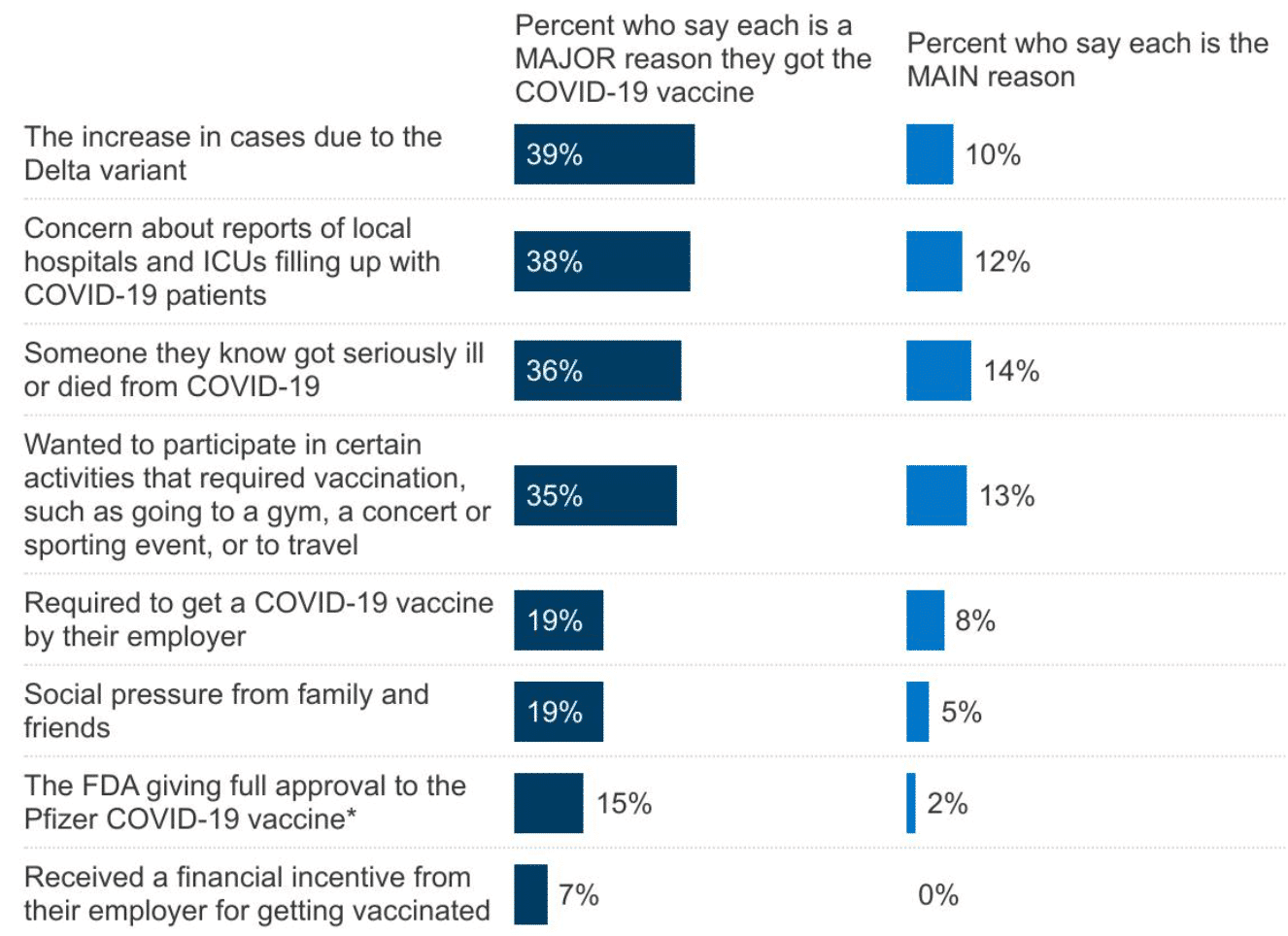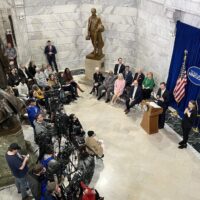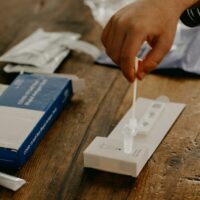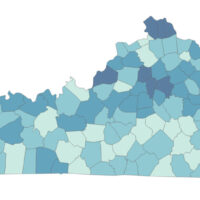A Kaiser Family Foundation poll of Americans vaccinated against the coronavirus since June 1 showed the reasons people who weren’t sure about it finally got their shots. The biggest were the delta variant, worries about hospitals filling up, seeing an acquaintance or friend get seriously ill or die from COVID-19, and wanting to take part in activities that required vaccination.
What’s most interesting in the poll is that “none of these approaches work very well in isolation,” says Yale University physician and public health lecturer James Hamblin. “Hesitant people don’t get vaccinated because of one ‘main’ reason, so much as because of a gradual accretion of reasons. They add up to eventually create the necessary urgency and eventually tip us toward responsible action.”
That’s no different than how most people make major life decisions, he writes, and it’s reason for optimism: “Point being, small things matter, even if you don’t see the impact right away. If you’ve had conversations with friends or family—or even just shared an article or study, or sent simple notes to people you know saying you care about them and hope they’ll reconsider—and yet you don’t feel it helped, you’re not alone. And ultimately it still may help. You just might not know what part you played.”






